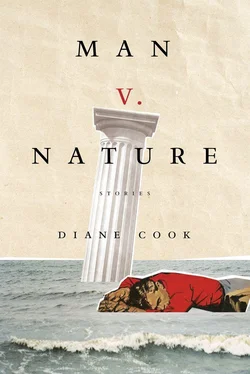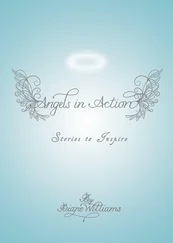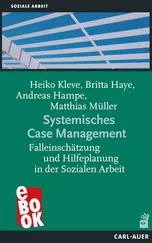She kept a log of all the things that had been taken from her that year. It sat heavily on her kitchen table. On mornings she’d sit before it, the sunrise making the wood table glimmer like the surface of a pond, slightly quaking from her unsteady breath and anxious knees, the wood grain arcing longways like bug trails on the water. She’d wait, peering down the road and drumming her fingernails on the table, the dense sound ricocheting around the house, into all the empty rooms, finally settling like leaves in her lap.
I get told I am Not Needed by a man in a suit. This only happens to ten-year-old boys, and only some. My mother cries and cries on the suit, and the man’s face budges not a bit. He says simply, as she is sobby, Ma’am, would you like the State to make a status exception for just your boy?
Of course, I know this trick from school, but Ma makes grateful saucer eyes and wiggles. Oh, would you?
So I hold her arm to steady her because it’s clear she isn’t ready for his two-punch.
There are no exceptions from the State.
The next day I put my belongings on the curb, and the Needed boys come for the good toys — my bike, skates, mitt — the things any ten-year-old wants; their mothers search for the clothes that fit and are warm, shoes of the right size. My pile is not the only one on the block.
Birds smother the trees, and to pass the time we throw rocks at them, hover while they sit stunned and blinking on the ground. We don’t mess with them there. Once they rise back up to the branches, we try to hit them again. I stun the same bird three times, which cheers me. It’s a hard game, but I’m good at it.
At dinner my father swirls his brown drink, looks at my mother with this expression I don’t know. Maybe he can’t settle on a feeling. He shrugs as if to say something.
My mother throws a spoon at him, yells. I know her look.
Ma, I cry. It’s no one’s fault.
My father’s face crumples.
I say, It’s random.
Ma says, Oh random, my eye.
I’ve never seen her so ugly.
In the morning, I board the bus. It’s a solemn ride. We look out the windows at our city disappearing. People on their way to work, girls in pretty dresses lined up outside a school. We hear the hollow huts of boys playing football. Boys we’ll never be. Then we’re speeding by dumps, by corn and cows and silos, reservoirs and fields of tree stumps, new swamps. We drive for hours, and many of us fall asleep.
We jolt awake at the Processing Hub, dead center in a mud lot of buses coughing darkness, buses full of boys like us.
I’m draped in a thin paper smock. My shoes are taken. I wait for hours that seem even longer in a line that coils and squeezes itself as we jostle for some last breathing room. Boy after boy, stoic or weepy, slides into the Chute. Here, the Chute is just a hole that makes a sucking noise. But beyond, it’s a long, snaking tube that leads to the Incineration Center. It’s a means to an end.
At the front of the line, a white-coated processor sits at a cluttered desk, his hair flying up, sucked by the Chute. He holds a clipboard of bulging paper, and when I tell him my name, he rustles through the pages and jots the time in a column, ENTERED CHUTE.
The processor says, Please get in the Chute.
I remind myself that this is my status, this is just the way things are. I tell myself, You had a nice time ; even, Maybe it’s better this way . I allow one last, fun, deep, muscle-straining breath, the kind you take before you dive into the quarry — the breath of being most alive — and I slide into the Chute.
I tumble toward the roar and rising heat of the Incinerator, trying not to think of life things, which only makes me think of them more. It’s an unfair game. The walls turn pocked and buckled. They are warming. Just as I’m trying not to think of Ma baking cookies, I wrap hard into a curve and bang against the side and stop. I hear a suck and a pop behind me; another boy has entered the Chute. I try to pull myself forward, to squeak my own way to my death. But I’m stuck. I feel cool air tickle my leg, and I realize my foot is no longer in the Chute. I feel around with my hands. I’m able to slip fingers out, then my arm. More cool air rushes at my face from where my arm and foot are. I’m caught in a hole; a fissure in the seam of the Chute. My stomach flutters. Around the curve, the funneling wind picks up, tugs at my body. I can hear the next boy hurtling toward me as I scrape my other leg through the hole, then the rest of me. I barely think about what I’m doing — that I’m going against my fate, the State, my status — and the consequences of it. I just have this feeling inside, like, Win .
And then I’m cold and in a stinking, mushy pit below the Chute, and it’s hollow dark. A pair of eyes blinks white at me, and I hear, Shush. Lots of teeth are smiling. A boy’s voice whispers, Can you believe it? And we find hands in the dark and squeeze, ecstatic. We can’t believe it.
We escaped the Chute! We’re not dead!
We wait in mud until the whirring Chute quiets. The end of Processing. It’s even harder to see our teeth and eyes now, as if the night has gotten deeper. We move toward the sound of frogs, and steadily we are more boys. We slither under a fence and through dark grass, run for an even darker line: a forest.
We bushwhack, try to navigate by stars, follow a river, eat what we find: little berries and thwacked oily nuts. We sing songs we’d sung in school. We tell jokes. As our eyes adjust, we throw rocks at skulking animals. A squirrel dies. We realize how hungry we are. We peel its skin, eat it raw. We puke.
The sun climbs, and a boy starts shouting, This way! A camp! I’ve found a camp!
He runs ahead and we run after, along the sandy and mucky river edge, until we break through the trees and into a clearing.
Black stones ring a pile of flaky, charred wood. A rough structure hides beneath a blanket of evergreen branches.
We mill about, touching things — animal bones, hatches in a tree to mark the passing days. A black soup pot and a ladle, a sharp blade, deer hides tacked up to dry.
The boy who found the camp holds up a stick, shrieking, This is an arrow!
We huddle, look nervously to the tangled trees surrounding us. We see that fourteen of us escaped the Chute. Fourteen boys, naked and shimmering with mud.
We should have buddies, one boy says. We think this is a good idea and pair off. I am with a boy named George. The two Michaels are together, and so we name the scrawny one Small Michael. Carl is the tallest, and he pairs with Alfred, the boy who found the camp, who is almost as tall. He is muscular too, in a way none of the other boys are muscular. Because they are tall and strong, they easily seem like the leaders. Ryan and Brian are paired, Joe and Davey, Fred and Frank, Steven and Gil.
Small Michael asks, What is this place? He sounds spooked, like a girl.
Must be an abandoned hunting camp, Alfred says. It must be very old.
Do you think we’re the first boys to escape the Chute? Carl asks.
We can’t be, I say, thinking of that hole that grabbed my leg and jerked me to a stop.
We must be, Alfred says. Otherwise there would be a whole community here of boys like us. But older.
It makes sense. Where would such boys have gone? Not-Neededs are not welcome anywhere.
This is when we understand that we’re here for good. We get quiet.
What are you whittling? Carl asks Alfred.
The arrow, Alfred says, and he holds it up. The point is dull. I’m making it pointier.
The point is now very pointy. He throws it at a tree, and it sinks in deep. He laughs. Alfred has a small laugh.
Читать дальше












